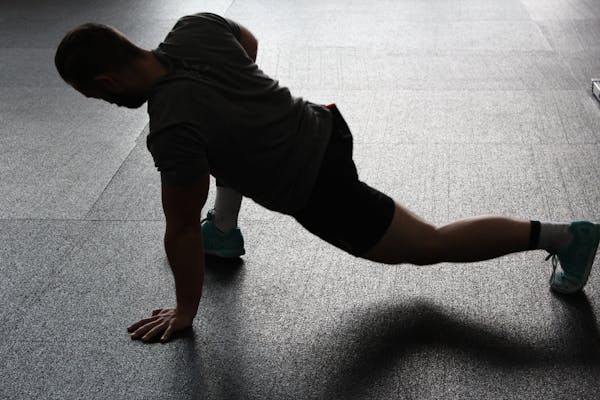Introduction
The inability to have a child can affect the mental health and well-being of couples. Polycystic Ovarian Syndrome, or PCOS, is a common cause of reduced fertility in people assigned female at birth (AFAB). But the good news is there are many treatments available for this condition. This article sheds light on one of the most simple and cost-effective treatments available for PCOS.
What is PCOS?
PCOS is the result of hormonal imbalances affecting people AFAB of childbearing age. About 5% to 13% of people AFAB in this age group have been found to have PCOS. Nearly 70% to 80% of people AFAB with PCOS have difficulty conceiving.1
During the monthly menstrual cycles, almond-shaped organs, called ovaries, present on both sides of the womb, create fluid-filled sacs on their surface. One of them continues to grow and is released as an egg each month that enables a person AFAB to conceive. This process is called ovulation.2 In PCOS, for some reason, the follicle fails to release the egg resulting in failed ovulation and, therefore, loss of ability to conceive.3
Symptoms
Although PCOS affects almost one in every 10 women in the UK, more than half of the affected people AFAB will have difficulty conceiving, in addition to irregular periods or no periods at all.3
PCOS is suspected when a young person AFAB has irregular periods, even after one year of starting their period, and in a person AFAB who has not started their period at 15 years of age.4
Some people AFAB with PCOS seek professional advice for acne or facial hair problems. Facial hair and acne are due to excess amounts of male hormones secreted in females.3 Male hormones are normally present in females and play a part in many metabolic functions in the heart, bones, muscles, etc.5 But, in PCOS, they are produced in excess amounts.
PCOS is associated with weight gain and reduced effectiveness of the hormone insulin in the body. This is called insulin resistance and is usually associated with raised levels of insulin in the blood. Weight gain and insulin resistance increase the risk of developing diabetes and disorders in the heart, liver, and blood.6
Management of PCOS with moderate exercise
Although PCOS presents a cluster of symptoms, a single treatment recommended for all of them is increased physical activity. Research has found irrefutable evidence that exercise has lots of benefits for women with this condition namely:
- Reducing the levels of male hormones, resulting in facial hair and acne reduction.
- Reducing the risk of developing diabetes and heart and liver problems in the future.
- Restoring regularity of menstrual cycles
- Increasing the chance of pregnancy.4
In addition to this, exercise has been found to improve the psychological well-being of a person AFAB.7
Effect of exercise on insulin
In overweight and obese individuals, the accumulation of fat around the tummy will also reduce the sensitivity of insulin. This results in an impairment in controlling sugar levels in the blood. In addition, this increases fat accumulation in the body and produces a state of chronic inflammation.8
Physical activity has been found to have immediate short-term and long-term improvements in glucose metabolism and insulin resistance. A study has found significant improvements in insulin sensitivity with weight reduction achieved by combining both exercise and diet modification.8
Effect of exercise on anti-inflammatory cellular response
Our immune system responds to external or internal potentially harmful agents by activating its biological response called inflammation. Although beneficial in the short term, the inflammatory process that is going on for a long time could result in disorders of cell function. For example, common diseases caused by chronic inflammation are diabetes, heart attacks, and cancer.9 PCOS is associated with low-grade inflammation.10 The immune response was found to be directed to anti-inflammatory status by regular moderate-intensity exercise.9
Recommended activities
At least 150 minutes of moderate activity or 75 minutes of vigorous physical activity regularly every week is recommended in the guidelines for people affected by PCOS and chronic inflammatory states.9
Stretching

Stretching exercises help to reduce tension in muscles and help you relax. They increase flexibility in the joints and improve blood circulation.
How to stretch:
- The stretching movement should be smooth and gentle
- The movement should be felt but not experienced as pain
- Hold the stretch for 2 long breaths or 10 seconds
- Relax for 2 more breaths
- Repeat the set 3 times.
When to stretch:
- Anytime is good!
- Preferably in the mornings to relieve stiffness
- In the evenings to relax
- Before or after any physical exercise.11
Swimming

If you are looking for a great all-around form of physical activity, swimming is a great choice for all, regardless of age or fitness level. Engaging in swimming regularly helps you lose weight and improve flexibility, strength, and mobility, in addition to reducing the risk of serious illnesses like heart disease, stroke, and rigidity.
Swimming is ideal for people with mobility problems and the elderly as it produces less strain on the joints. Try to engage in moderate-vigorous swimming for 30 to 45 minutes per week to meet the recommended levels of physical activity.
Swimming has also been found to reduce stress levels and improve mood and mental health.12
Going on walks
Going for a walk is a simple, free and easy way to lose weight, become active and improve health. You do not have to walk for hours, a brisk walk daily for 20 minutes or so is sufficient to meet your 150 minutes of exercise weekly.
Another way to walk is to include walking in your daily routine, like walking to the shops or using the staircase instead of lifts.
Listening to music and joining a walking group are ways to make your walk more enjoyable. If you live in the UK, you can also download the Active 10 app to keep track of your goals and accomplishments.13
Dancing to your favourite music
Dancing is a wonderful way to express oneself creatively. It is a fun process and a very effective way to get fit, improve mobility and make social connections. Whether enjoyed individually or as part of a group, dance improves the physical and emotional well-being of a person by reducing isolation and loneliness and improving self-worth.14
Dance improves bone and muscle strength and lung capacity, and it increases stamina and endurance. Research has found that regular dancing improves the flexibility of joints and increases coordination and balance. In the elderly, regular dancing has been found to reduce the risk of osteoporosis (a condition where bones become more fragile) and improve vision.14
Summary
To conclude, we have explored how PCOS impacts the lives of people AFAB of childbearing age and the chronic lifestyle diseases it could lead to. Increasing physical activity is a safe, drug-free, and effective treatment for PCOS. In addition to improving fertility, exercise and weight loss have given both immediate and long-term improvement in the life of a person AFAB. There are a variety of ways to do exercise training and multiple options to make it more enjoyable for all.
References
1. Melo AS, Ferriani RA, Navarro PA. Treatment of infertility in women with polycystic ovary syndrome: approach to clinical practice. Clinics (Sao Paulo) [Internet]. 2015 [cited 2022 Nov 22]; 70(11):765–9.
2. Your menstrual cycle | Office on Women’s Health [Internet]. [cited 2022 Nov 22].
3. Polycystic ovary syndrome. nhs.uk [Internet]. 2017 [cited 2022 Nov 22].
4. CKS is only available in the UK. NICE [Internet]. [cited 2022 Nov 22].
5. Rosato E, Sciarra F, Anastasiadou E, Lenzi A, Venneri MA. Revisiting the physiological role of androgens in women. Expert Review of Endocrinology & Metabolism [Internet]. 2022 [cited 2022 Nov 22]; 1–15.
6. Barber TM, Hanson P, Weickert MO, Franks S. Obesity and Polycystic Ovary Syndrome: Implications for Pathogenesis and Novel Management Strategies. Clin Med Insights Reprod Health [Internet]. 2019 [cited 2022 Nov 22]; 13:1179558119874042.
7. Woodward A, Klonizakis M, Broom D. Exercise and polycystic ovary syndrome. In: Xiao J, editor. Physical Exercise for Human Health [Internet]. Singapore: Springer; 2020 [cited 2022 Dec 13]. p. 123–36. (Advances in Experimental Medicine and Biology).
8. Keshel TE, Coker RH. Exercise Training and Insulin Resistance: A Current Review. J Obes Weight Loss Ther [Internet]. 2015 [cited 2022 Nov 22]; 5(0 5):S5-003.
9. Scheffer D da L, Latini A. Exercise-induced immune system response: Anti-inflammatory status on peripheral and central organs. Biochim Biophys Acta Mol Basis Dis [Internet]. 2020 [cited 2022 Nov 22]; 1866(10):165823.
10. Rudnicka E, Kunicki M, Suchta K, Machura P, Grymowicz M, Smolarczyk R. Inflammatory markers in women with polycystic ovary syndrome. BioMed Research International [Internet]. 2020 Mar 6 [cited 2022 Dec 13];2020:e4092470.
11. Stretching exercises - OxPARC [Internet]. [cited 2022 Nov 22].
12. Swimming [Internet]. [cited 2022 Nov 22].
13. Walking for health. nhs.uk [Internet]. 2022 [cited 2022 Nov 22].
14. How dance improves physical and mental health | NHS Confederation [Internet]. [cited 2022 Nov 22].






